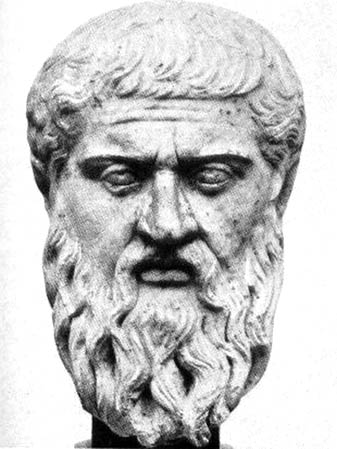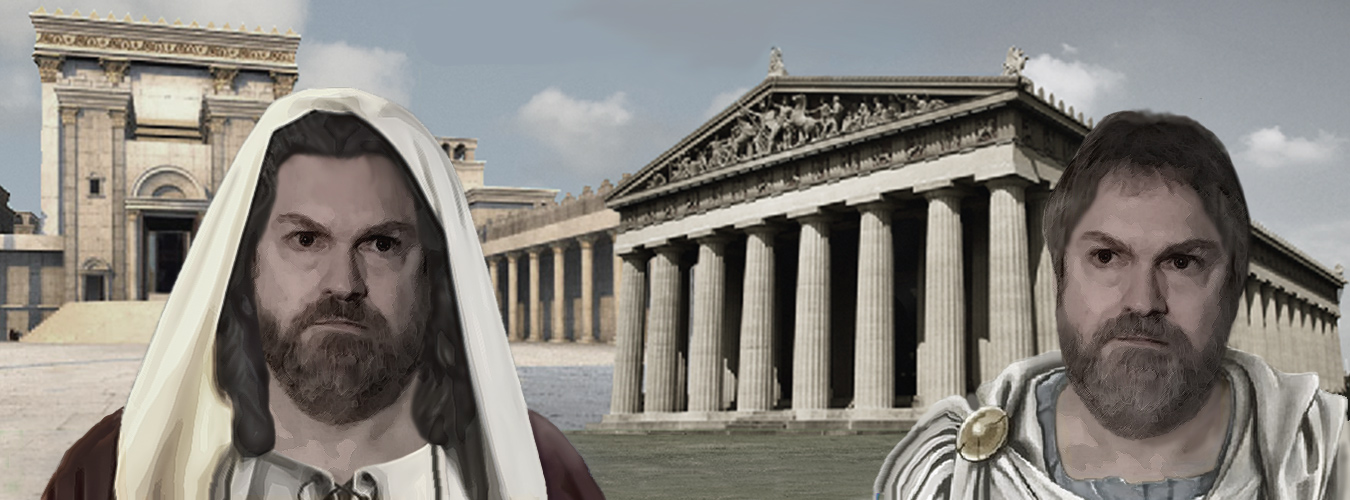 Plato was a philosopher and mathematician of the 4th century BC in Classical Greece. Along with his teacher (Socrates) and his most famous student (Aristotle), he was an essential figure in the development of Western philosophy. Plato was the founder of The Academy in Athens, which was the first institution of higher learning in the Western world. Though influenced primarily by Socrates, who was usually the main character in Plato’s writings, he was also influenced by Heraclitus, Parmenides, and the Pythagoreans. Plato’s dialogues have been used to teach philosophy, logic, ethics, rhetoric, religion and mathematics.
Plato was a philosopher and mathematician of the 4th century BC in Classical Greece. Along with his teacher (Socrates) and his most famous student (Aristotle), he was an essential figure in the development of Western philosophy. Plato was the founder of The Academy in Athens, which was the first institution of higher learning in the Western world. Though influenced primarily by Socrates, who was usually the main character in Plato’s writings, he was also influenced by Heraclitus, Parmenides, and the Pythagoreans. Plato’s dialogues have been used to teach philosophy, logic, ethics, rhetoric, religion and mathematics.
Little is known about Plato’s early life and education, but it is believed that he came from one of the wealthiest and most influential families in Athens. His father was Ariston, who traced his descent from the king of Athens (Codrus), and the king of Messenia (Melanthus). His mother was Perictione, whose family was connected to the famous Athenian lawmaker Solon.
Plato’s theory of Forms refers to the belief that the material world that we see is not the real world, but only a representation or copy of the real world. In Plato’s dialogues this theory is expressed by Socrates. According to him, forms are abstract representations of the many types of things we see around us that can only be perceived by reason. Therefore, Socrates recognized two worlds – the world we see and live in that is constantly changing, and the unseen and unchanging world that the forms represent.
Plato’s philosophical views had many implications regarding society and government. Plato, through the words of Socrates, asserts that societies have a tripartite class structure corresponding to the appetite/spirit/reason structure of the individual soul. The appetite/spirit/reason are analogous to the castes of society.
- Productive (Workers) — Laborers, carpenters, farmers … etc. These correspond to the “appetite” part of the soul.
- Protective (Warriors or Police) — Those who are strong and brave. These correspond to the “spirit” part of the soul.
- Governing (Rulers) — Those who are intelligent and have wisdom are best suited to make decisions for the community. These correspond to the “reason” part of the soul.
According to this model, very few of the rulers of Athenian democracy in Plato’s day were fit to rule. Instead of the rhetoric and persuasion of the Sophists, Plato argued that reason and wisdom should govern.

